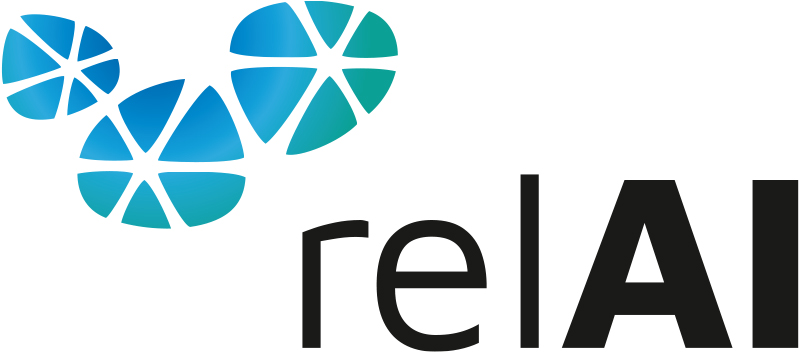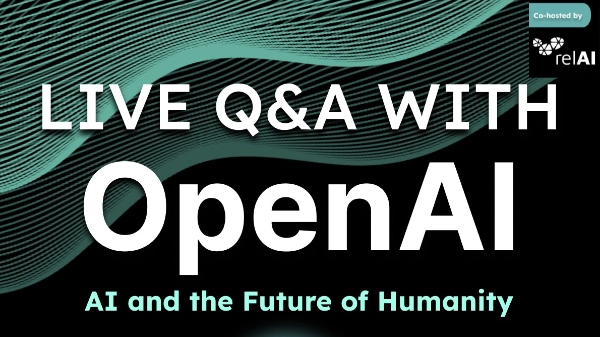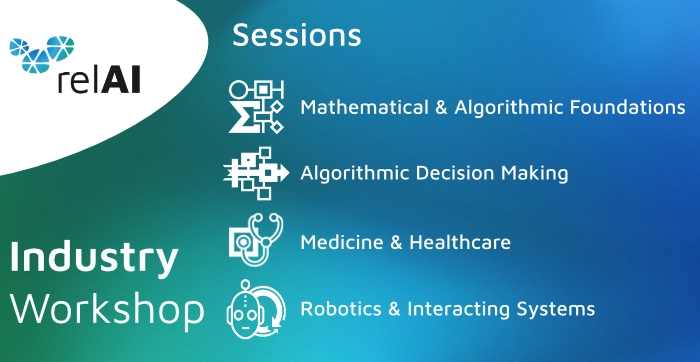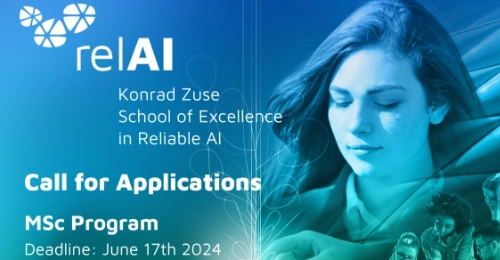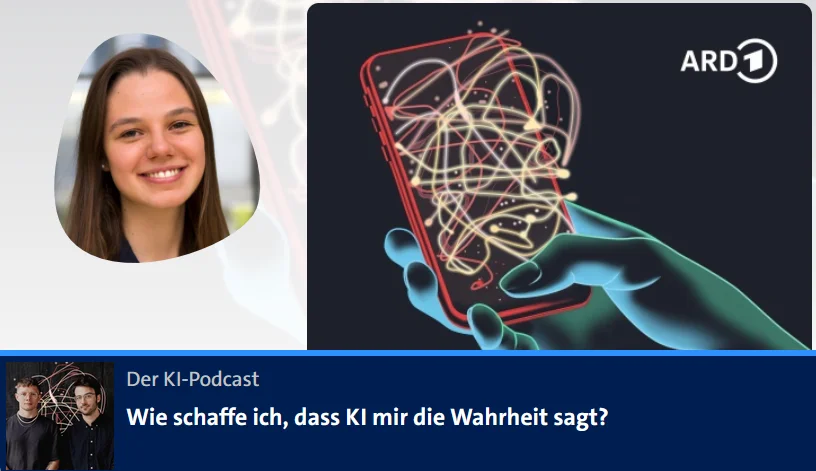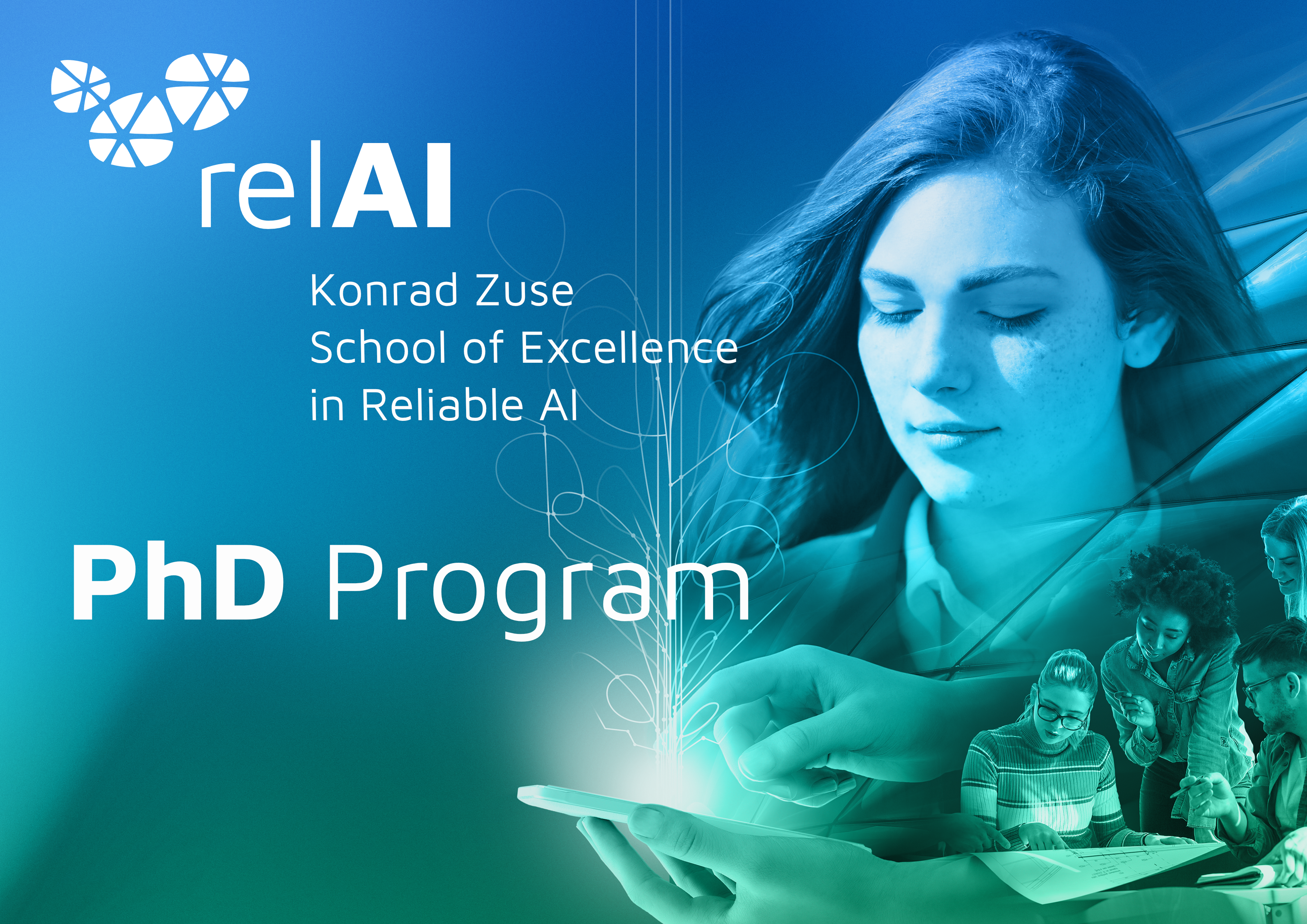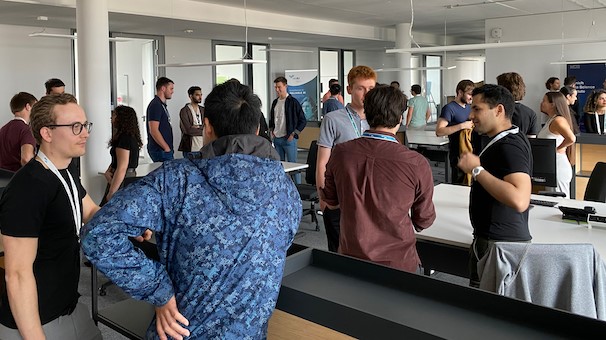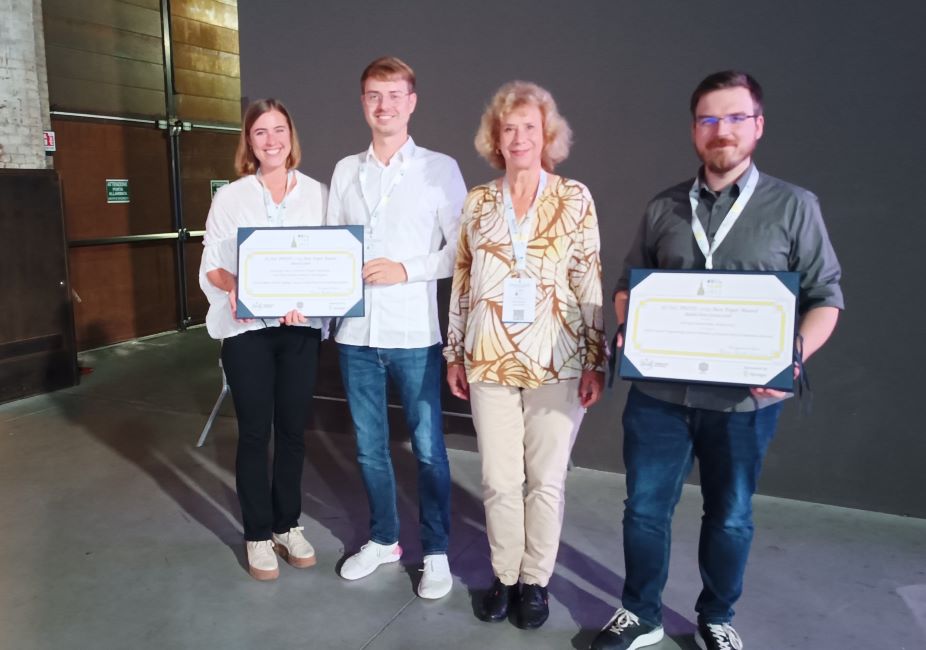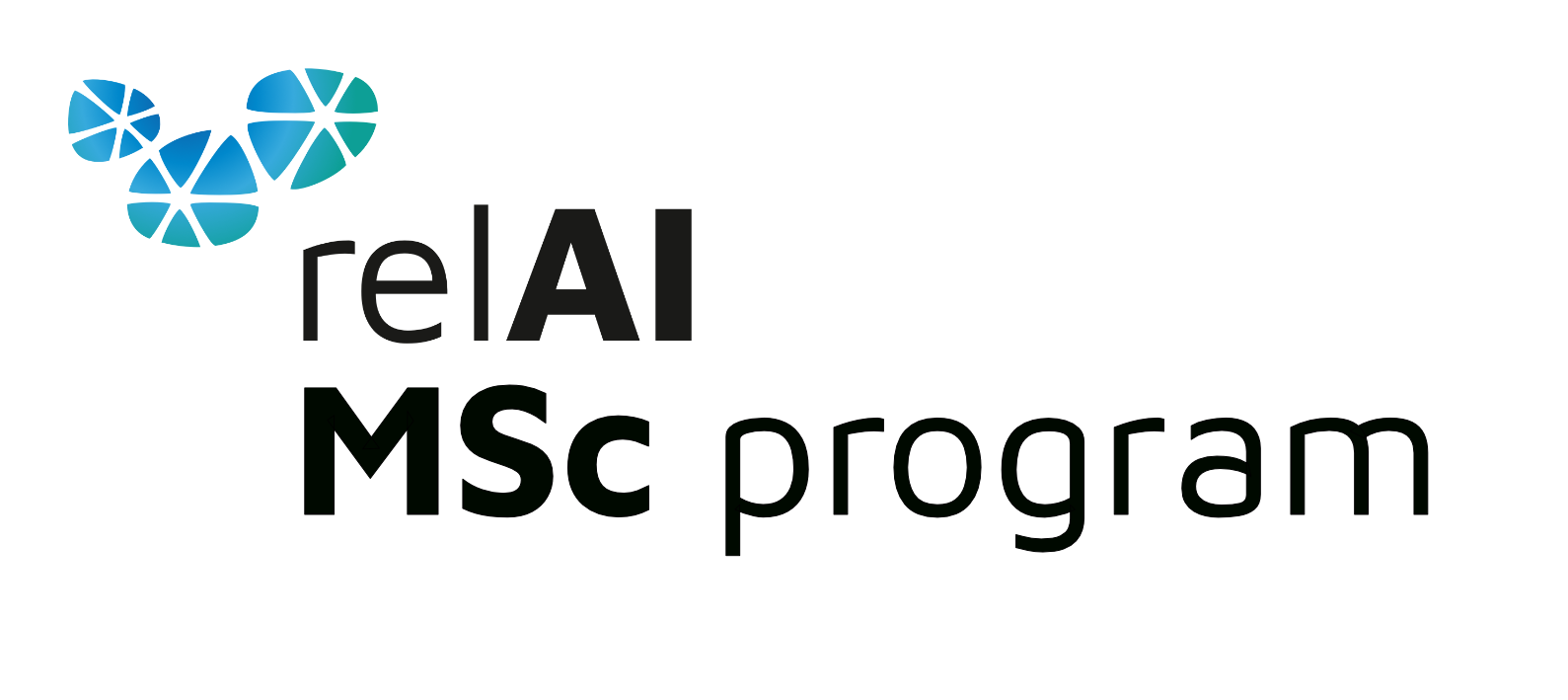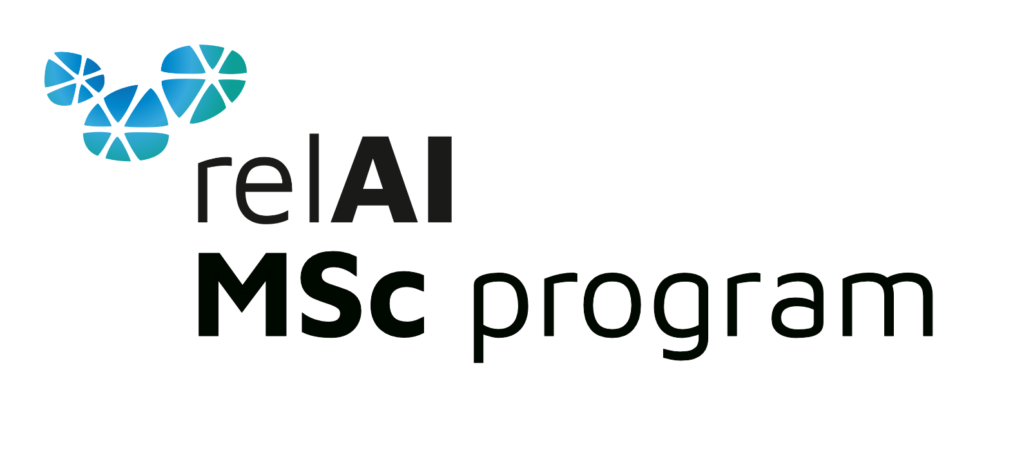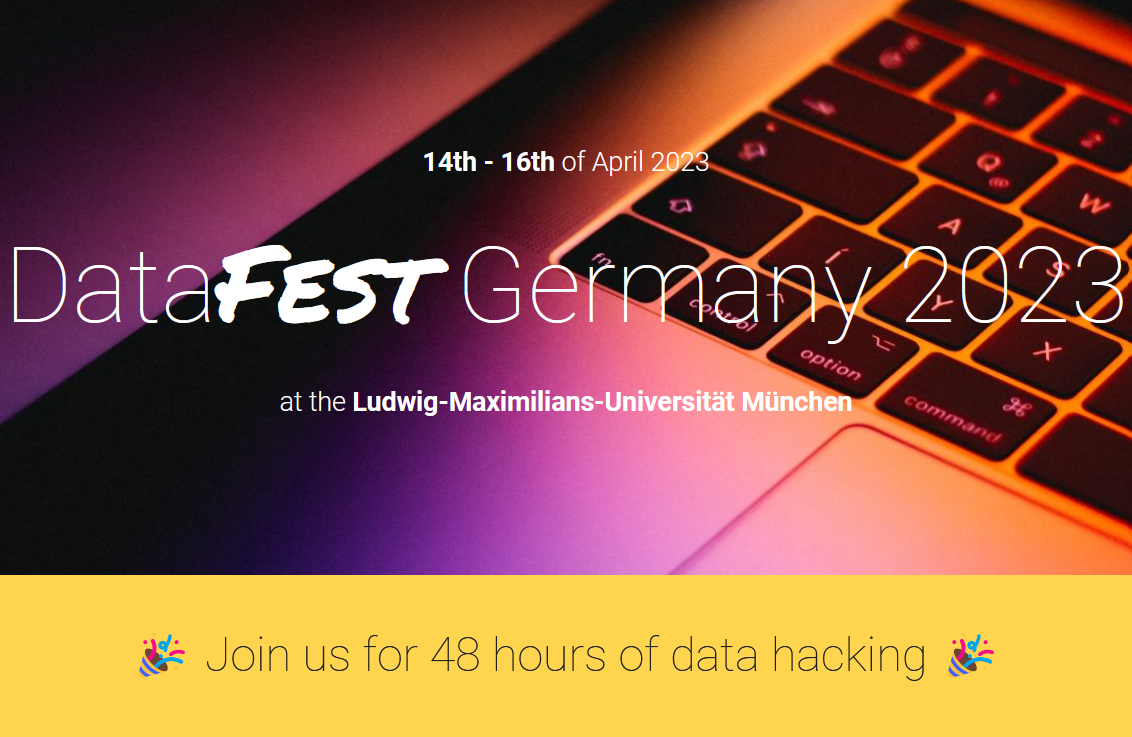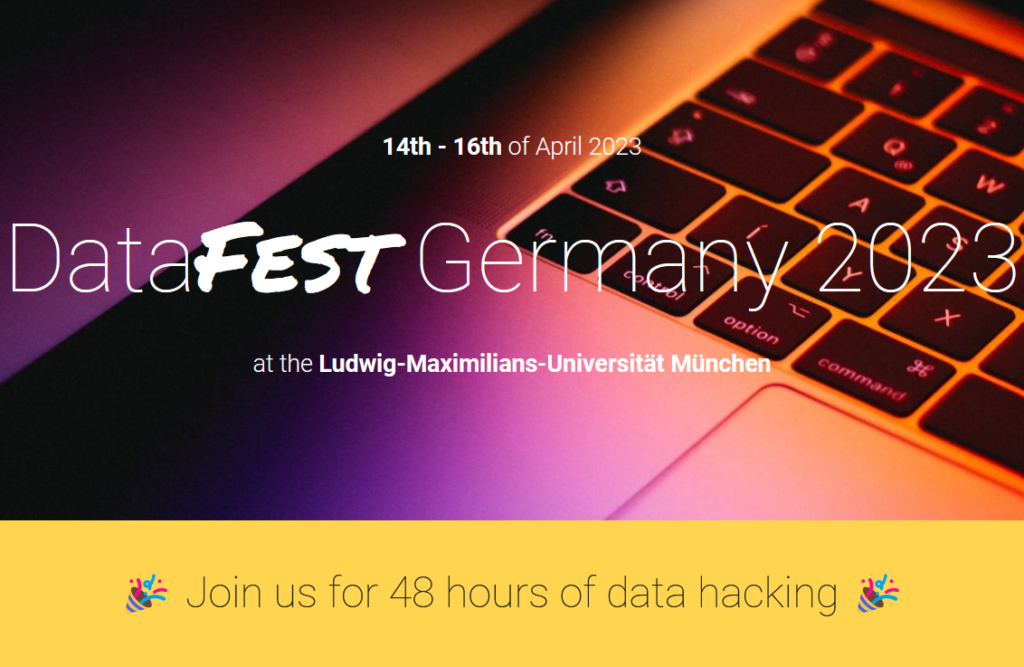
Image Copyright (c): Thomas Abé/Studienstiftung
Congratulations to relAI student Maria Matveev!
The German National Scholarship Foundation (Studienstiftung) has awarded Maria the Civic Engagement Award 2024 for her exceptional volunteering work with Lern-Fair. Maria co-founded and chairs Lern-Fair e.V., a non-profit organization dedicated to providing free educational opportunities for underprivileged pupils. Since the start of the online platform in 2020 during the Covid pandemic, more than 15.000 pupils were supported by free tutoring or group courses.
Maria is a relAI PhD student at the chair for Mathematical Foundations of Artificial Intelligence at LMU and the Munich Center for Machine Learning. Her PhD research, advised by the relAI director Gitta Kutyniok, focuses on the mathematical description and understanding of training dynamics related to generalization, a crucial factor for ensuring the reliability of neural networks.
Learn more about Marias volunteer work in the video portrait (in German): https://youtu.be/EUZdm--sqmc?feature=shared
